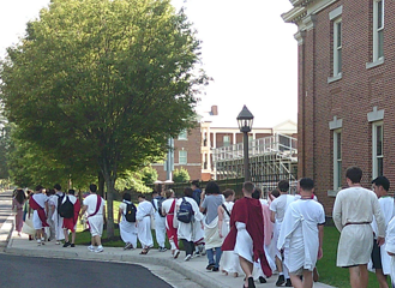Economic Impacts of Marijuana Legalization vs. Decriminalization in Virginia
January 21, 2021
On November 4th, 2020, Oregon’s state legislature voted to decriminalize all drugs including heroin, methamphetamine, and PCP. Since then, incarceration rates in the state have decreased significantly. Following the decriminalization of marijuana in Virginia, similar effects have been noted from an economic standpoint. The question is: What impact will the legalization of drugs, specifically marijuana, have on Virginia’s economy?
Oregon legalized the recreational use of marijuana in a 2014 Ballot Measure, and currently, marijuana is fully legal in fifteen states as well as the District of Columbia. On July 1st, 2020, Virginia passed a legislation that decriminalized marijuana for recreational use and possession of under an ounce. There are guaranteed economic effects every time a drug is decriminalized or legalized, and these effects can be generalized into two main categories: mass incarceration and illegal transfer of money.
It was brought to my attention in an interview with Delegate Sally Hudson that the legalization of marijuana has no new effect on incarceration rates because it was previously decriminalized (this means no economical effects). After the Virginia state legislature voted to decriminalize marijuana in 2019, arrests for weed possession for personal use were entirely abolished. With fewer incarcerated people in Virginia, the government can lower stipends to prisons and jails which are used to pay for housing, food, and utilities for inmates.
But legalization does mean no person above the age of 21 will be fined for the possession or use of marijuana. According to The Washington Post, Virginia prosecutes between 40 and 50 thousand people a year for marijuana possession. That’s $25 per possession that the government will no longer get after legalization.
In relation to the illegal transfer of money connected to the drug trade, money flow in Virginia is completely underground. Even after decriminalization, marijuana distribution remains illegal. Because it is not fully legal, the government cannot regulate the product and reaps no tax benefits. They also have no control over where the money comes from or where it ends up. As of right now, marijuana drug lords and traffickers receive all of their profits from personal customers: pot possessors. The stakes of the drug dealing hustle are highly underestimated: violence, jail time, and income. So what would happen to dealers if marijuana possession becomes fully legal?
Well when any substance is fully legalized, it means that shops in that given jurisdiction are allowed to open and sell that product under certain regulations. Weed prices in dispensaries are higher than the rates of dealers, which is a reason some people would remain in the drug trade even after legalization. But the products sold in dispensaries are highly regulated to ensure quality, which is a weakness within the drug trade. In drug deals, patrons may not always know how safe the product is, or where it even comes from. This can deter marijuana users from buying from dealers, and cause them to buy from dispensaries despite the higher rates.
If marijuana is legalized in Virginia, businesses can open government-regulated stores that function similarly to ABC stores. On this occasion, ex-drug dealers can receive permission from the government to open shop and sell a product. A portion of the earnings from these shops will be deducted and tagged as federal taxes. This would boost the state’s economy. The Joint Legislative Audit and Review Commission (JLARC) reported that sales could bring in $300 million in tax revenue and create over 11,000 jobs. “The underground trade will be brought into the light, ” said delegate Husdon.
“Prohibition has failed to significantly reduce access to and use of marijuana, while wasting billions of dollars,” a Vox reporter remarks. Government leaders are realizing the toll drug charges take on individuals as well as federal and state spendings. People should care because these laws could impact their lives directly and indirectly.




